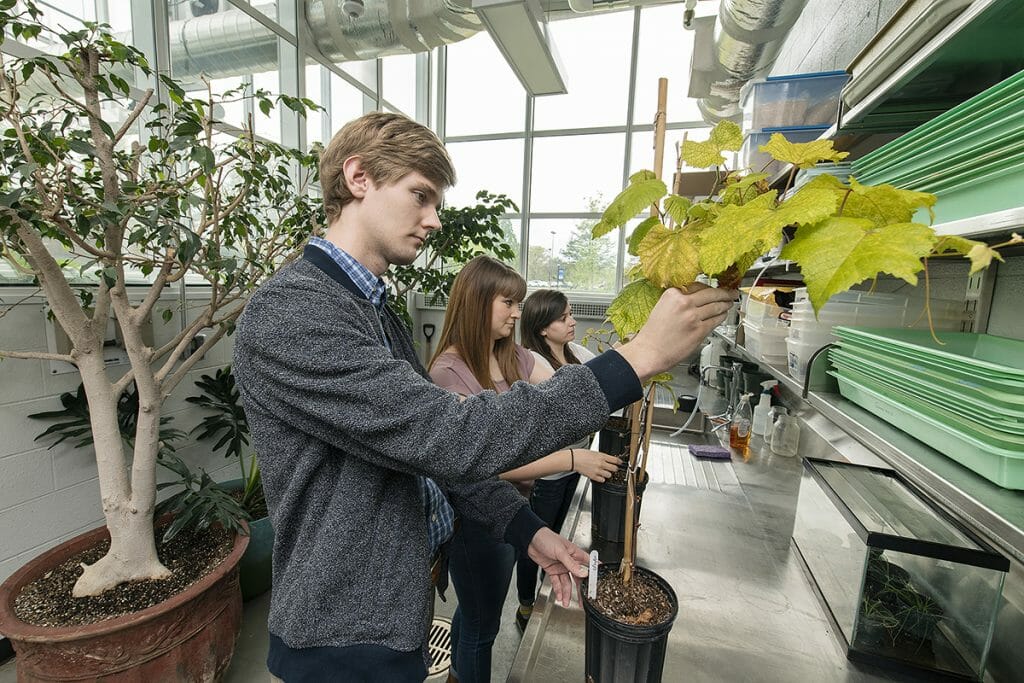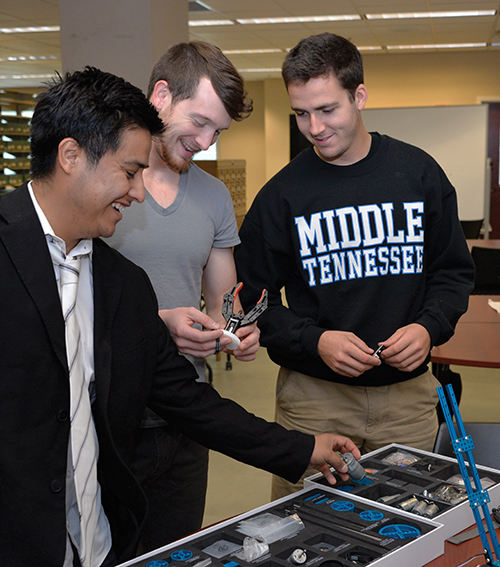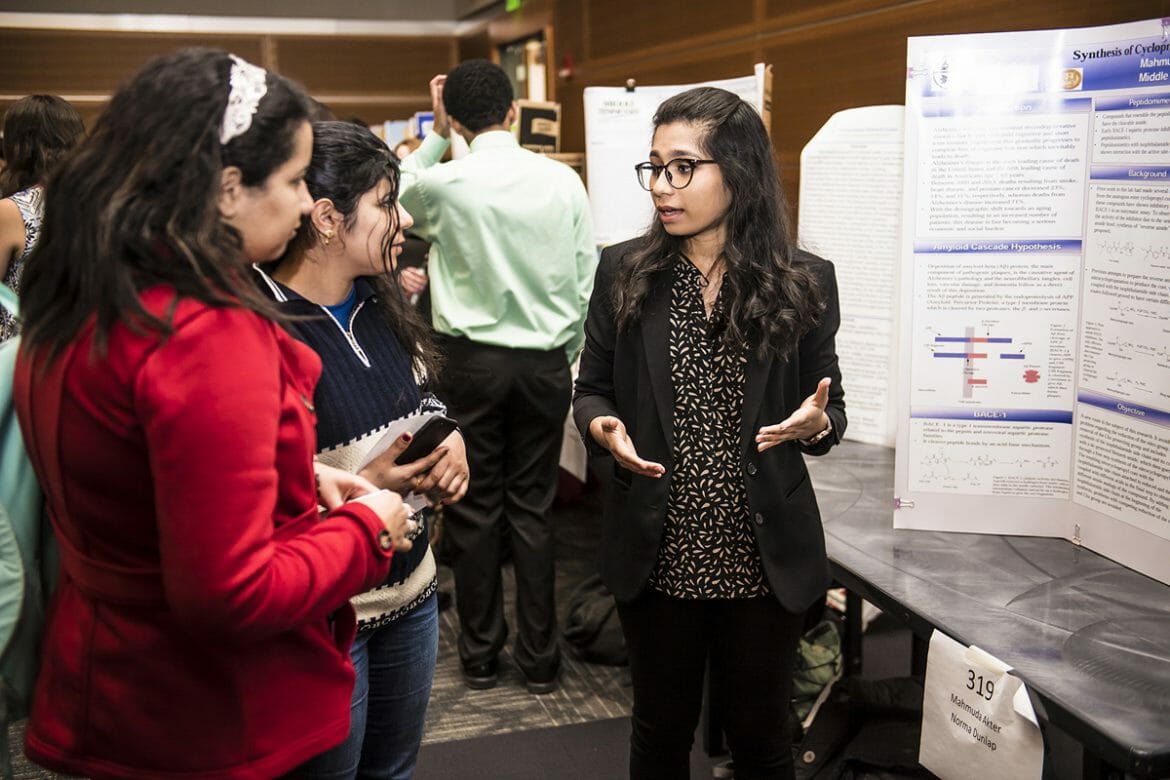Research. Probably the greatest example of a word that sounds boring in your ears but is actually one of the most exciting opportunities presented to you as a college student.
Sure, there is extra work involved, but that extra work involves doing-hands on projects with experts in your field that will put you a step ahead when trying to land that first big job.
And the best part? Anyone can easily do it, especially you!
First off, you may want to know exactly what we mean when we say “research.” To put it simply, you’re using resources that MTSU provides to create some sort of investigation that produces an original idea or concept.
For your project, you’re figuring out the how’s and the why’s of something happening in your field. You work with faculty members with years and years of experience with a certain topic, so that you have a mentor to guide you through the process.
In the end, there’s a good chance you’ve figured something out that no one has before!
But what do I gain from doing research as an undergrad?

MTSU undergraduate research grant recipients Nolan Jolley, front, Amanda Uhls and Aimee Wilson check the status of their grape projects in a special Science Building laboratory. (MTSU photo by Andy Heidt)
Besides the awesome feeling of having new information as your finished product, there are plenty of reasons why you should take advantage of research opportunities.
For starters, you’re probably going to want letters of recommendation for graduate school or your career, and this is the absolute best way to get them. While you may do well in a professor’s class and make a good impression, they still don’t know how you’d work in a professional career setting.
However, if you’re working alongside them on a project outside of class, they can paint a much better picture of your work ethic and determination, which is an important quality that employers look for.
Also, there are a ton of soft skills that you’ll be able to practice that will help you in any career. Working in teams, learning to problem solve, and communicating effectively are all a part of the research process, so you’ll get plenty of opportunities to work on these skills.
Ok, not saying I’ll do it, but what are my options?
I knew you’d come around! You have a few good options to consider. It primarily depends on where you are in your academic journey.
The most popular route is applying for a URECA grant, which stands for Undergraduate Research Experience and Creative Activity. It’s a very simple process in which you find a mentor, draw up a proposal, and apply for funding.
If you have an idea that you think is worth exploring, you may be able to get funding for it and benefit from the resources the program provides. Based on your experience and the project you select, you could be eligible for an award ranging from $500 to $3,500!
You don’t need a URECA grant to gain research experience, though. Most professors spend a substantial amount of time working on projects in their field and believe me, they ALWAYS could use more helping hands.
As I mentioned earlier, working on a faculty member’s project is a great way to obtain that letter of recommendation and develop important skills for the professional world. Just reach out to them!
Fine, Student Voice writer, I’m sold. How do I start?

URECA recipients and Mechatronics Engineering students Chris Secrest, Aldair Nieto, and Brad Hobbs in the Maker Space of James E. Walker Library working on their project
So, unless you’re just reading this article for fun, this actually interests you. Which is great! Now, all you have to do is start asking questions.
Not only do you need to ask the school for money or ask professors if you can work on their project, but you also need to be asking yourself what sort of research you want to conduct.
If you want to help with someone else’s project, start asking around and find out what is already being worked on and what sort of role you could serve as a member of the team.
Find a project that deals with something you’re passionate about, preferably with a professor you already know. They’ll be more likely to welcome you into their project and give you duties that will help you grow as a researcher.
On the other hand, if you would like to apply for a URECA grant, put a ton of time into your project selection. You’ll want to brainstorm as many ideas as possible and put together a strong proposal once you’ve decided.
Finding a great faculty advisor is crucial, as their expertise and prior experiences will help guide you to success. Once again, it is preferred that you choose someone who you’ve worked with before so that you know they’d be a good fit and would be willing to assist you.
Although grades are important and the social experience of college is life-changing, research is yet another way you can get more value out of your degree. The extra work required may be daunting, but the rewards you receive are ones that you’ll take along for the ride for the duration of your professional career.
Putting a research project, whether you worked on one or completed one yourself, on your resume will ensure that your name sticks out when applying to graduate school or for a job.
Don’t be afraid to fail and don’t be afraid to enter uncharted territory, because that’s where the best new ideas come from.
Author Kobe Hermann is a senior at MTSU, majoring in management in the Jones College of Business and minoring in economics and business administration. The views and opinions expressed above are his own.


COMMENTS ARE OFF THIS POST